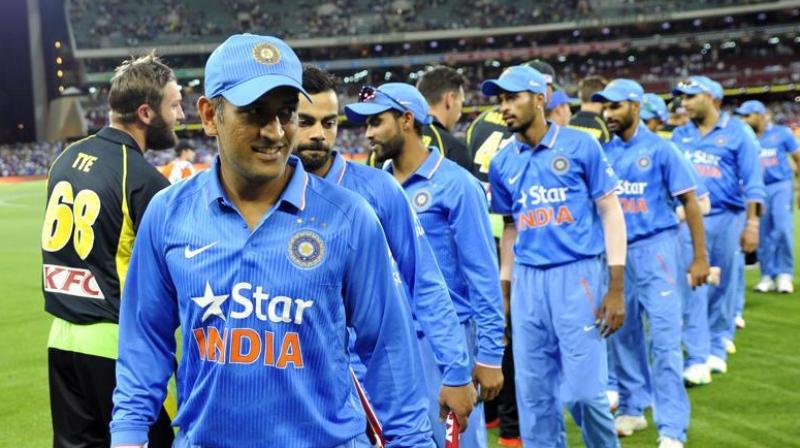Mahendra Singh Dhoni: The most un-Indian captain India ever had

Mumbai: MS Dhoni did the most MS Dhoni thing. There was no outpouring of emotions visible to the public. There was no “I have an announcement to make” suspense. There was no dropping of any hints, even though he was followed by cameras as he played mentor to Jharkhand side which was playing the Ranjii Trophy semifinal in Nagpur. But like his wicketkeeping and batting, low on intricacies and high on outcome, his decision to hang his captaincy boots from ODIs and T20Is has made a huge impact since the time BCCI’s media release, like it did when he retired from Test cricket in December 2014, delivered the news.
Dhoni does not like unnecessary drama. He keeps things simple. He swears by process rather than chasing a spur of the moment brilliance. As the observers of the game often point out, he looks indifferent to the situation. There might be a little shrug of the shoulder, a sharp look towards the erring fieldsman or those camouflage gloves covering his face and his disappointment at times. But Dhoni has hardly ever given away what he feels on the cricket field. To put it differently, he is the most un-Indian skipper India have ever had, if one compares him with the ones who captained India before him.
It also helped that he hardly ran short on calmness. In fact, as passionate as he was to play for India, his passion never got the better of him in tight situations. It also helped the side which had a mixture of players, the ones who were moving closer to call curtains on their respective careers – Sachin Tendulkar, Zaheer Khan, Rahul Dravid, VVS Laxman – and the likes of Virat Kohli, Gautam Gambhir, Rohit Sharma, R Ashwin and Ravindra Jadeja, who were taking important steps to cement their places in the side – and required someone to calm their nerves.
It did not mean that he did not take tough calls. In fact, his brave decision, when he was made India’s ODI skipper, to drop Sourav Ganguly and Rahul Dravid from the limited-overs side, paid rich dividends as India went on to win World Cup in 2011.
While his swashbuckling approach in the earlier stages of his international career was always a threat for the opposition, Dhoni the batsman under Dhoni the captain was largely calculative and even more dangerous than in his earlier avatar. Not that he did not smack a few – a glorious 79-ball 91in the World Cup final against Sri Lanka is testimony to the same. But he led from the front to develop a culture where the team believed they can win from any situation and the fans lapped it up as Dhoni showed how it is practiced without focusing much on the milestones.
It hardly ever mattered to him how many hundreds he scored and how many catches he grabbed. Dhoni’s individual record is quite compelling – most number of matches as skipper across all formats (331), most number of ODI games as India captain (199), most number of games as T20I skipper (72).
However, Dhoni’s legacy was that he was the leader, who strongly favoured team goals over individual landmarks, and powered India to clinch three ICC trophies – ICC World Twenty20 in 2007, ICC World Cup in 2011 and ICC Champions Trophy in 2013. His biggest contribution to Indian cricket is that he inspired many from the hinterlands of the country to dare to dream big and to follow what they truly believed in as he went on to sow the seeds of the winning attitude in the national side.
He is no longer India’s captain and Virat Kohli is ready – which a good sign for Indian cricket. Kohli has proven his worth by captaining India to five Test series wins in a row against Sri Lanka, South Africa, West Indies, New Zealand and England, to shoulder the responsibility to lead India across all formats. It will take a while to let the “MS Dhoni was India’s limited-overs skipper” feeling to sink in. With him opting to call it a day as India’s captain in ODIs and T20Is, you can sense the end of his career is near. But as he once said, “Till the full stop does not come, the sentence is not complete.”

